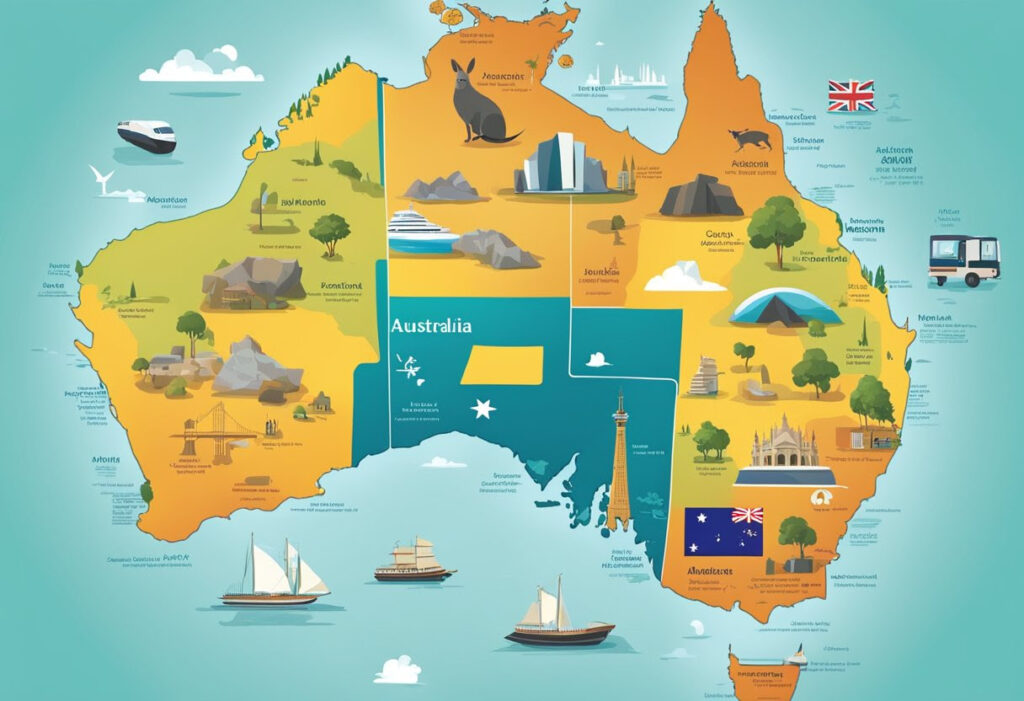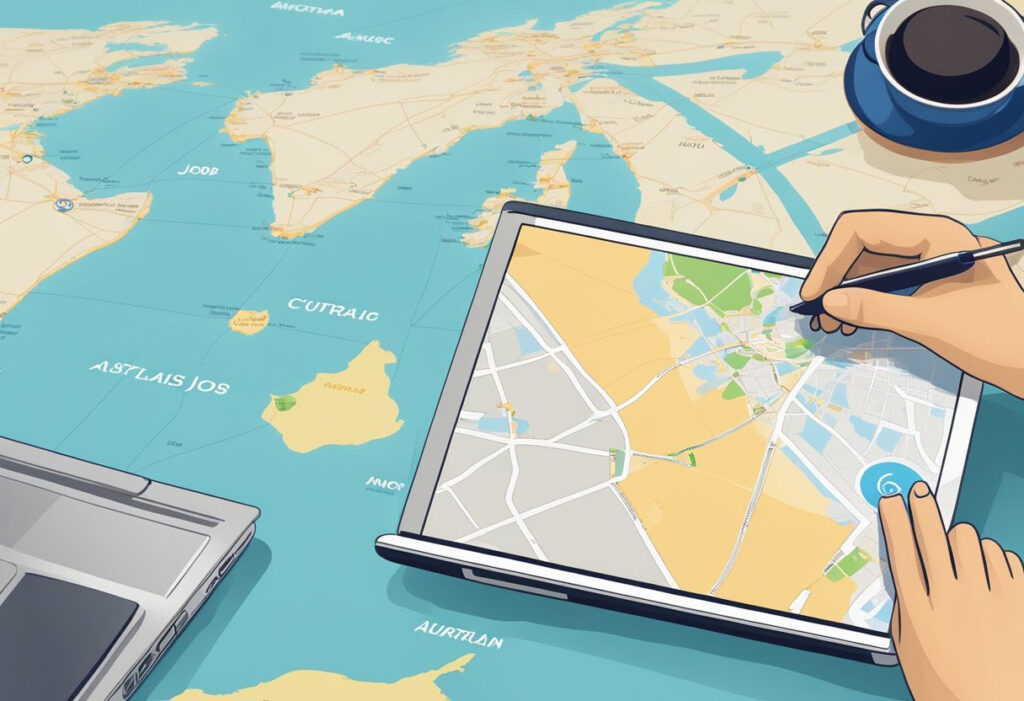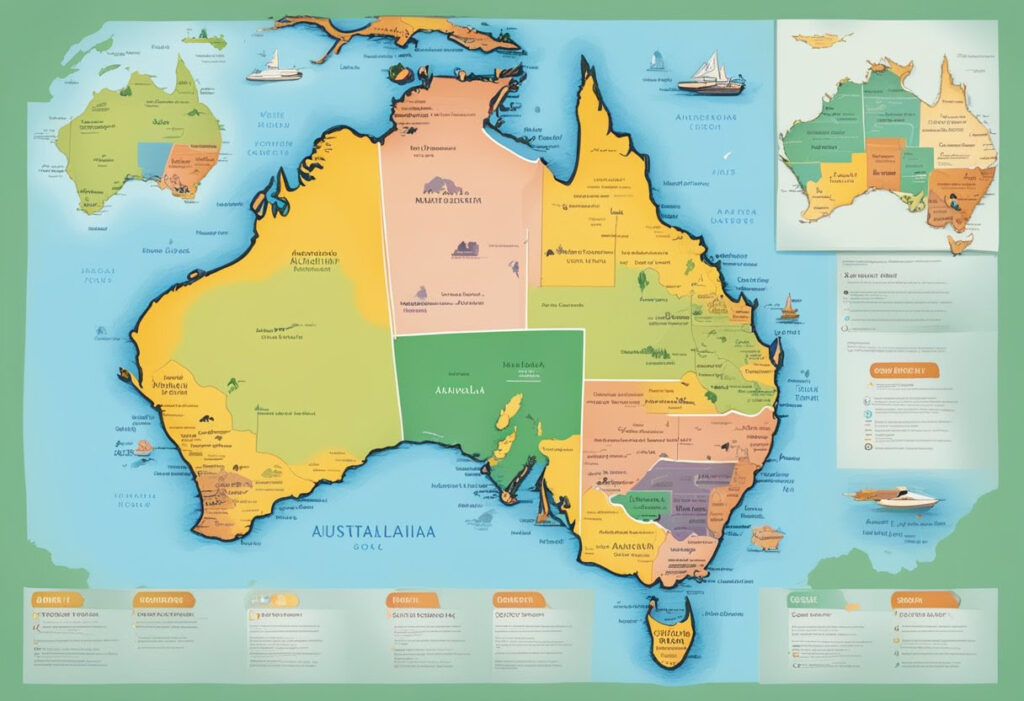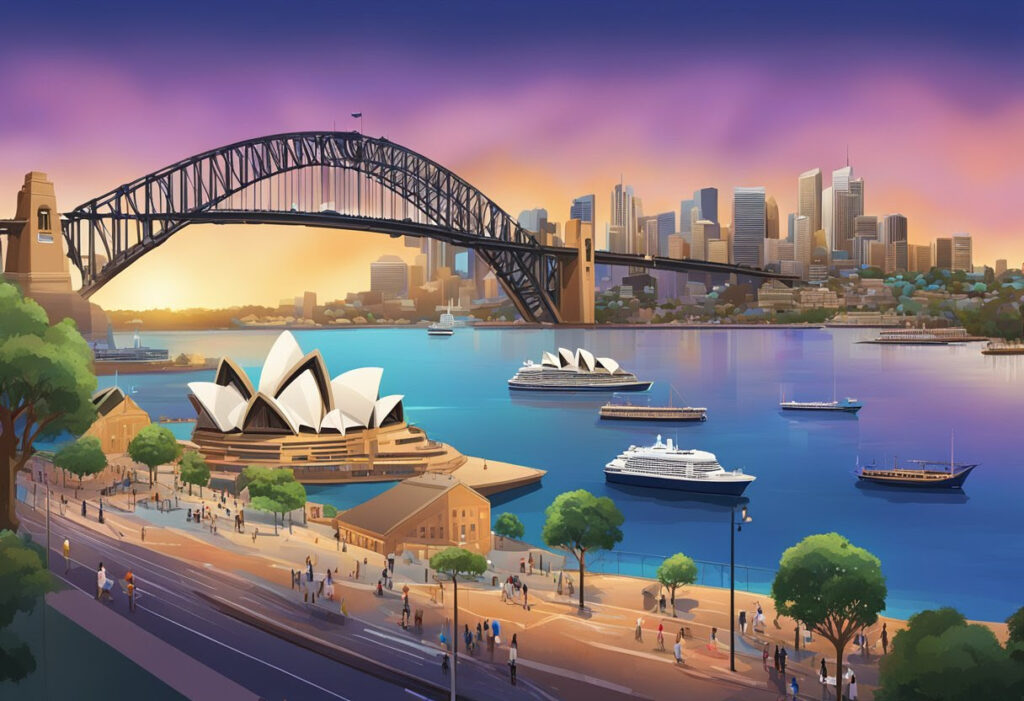Australia is a popular destination for people seeking job opportunities and a better quality of life. The country offers a high standard of living, excellent healthcare, and a strong economy. Australia is also known for its diverse culture, beautiful landscapes, and friendly people. If you are considering moving to Australia for work, there are many job openings available in various industries.

One of the most important things to consider when moving to Australia for work is obtaining the correct visa. There are several types of visas available, including skilled worker visas, working holiday visas, and business visas. The visa application process can be complex, so it is important to research the requirements and seek professional advice if necessary.
Once you have obtained a visa, there are many job opportunities available in Australia. The country has a strong economy and a low unemployment rate, which means there are many job openings across various industries. Some of the most in-demand jobs in Australia include healthcare professionals, IT professionals, engineers, and tradespeople. With the right skills and experience, you can find a job that suits your interests and qualifications in Australia.
Overview of the Australian Job Market

Australia has a diverse and dynamic job market that offers a wide range of opportunities for both local and international job seekers. The country’s robust economy and stable political environment make it an attractive destination for professionals looking to live and work abroad.
Key Industries
Australia’s economy is dominated by several key industries that offer significant employment opportunities. These industries include:
- Healthcare: With an aging population and increasing demand for healthcare services, the healthcare sector is one of the fastest-growing industries in Australia. The sector offers a wide range of job opportunities, including doctors, nurses, allied health professionals, and support staff.
- Mining: Australia is a major producer of minerals and resources, and the mining industry is a significant contributor to the country’s economy. The sector offers a range of job opportunities, including engineers, geologists, miners, and support staff.
- Technology: The technology sector is growing rapidly in Australia, with many startups and established companies operating in the country. The sector offers a range of job opportunities, including software developers, data analysts, and IT support staff.
- Tourism: Australia is a popular tourist destination, and the tourism industry is a significant contributor to the country’s economy. The sector offers a range of job opportunities, including hotel staff, tour guides, and hospitality professionals.
Employment Trends
The Australian job market has been steadily growing in recent years, with strong employment growth across many industries. According to the Australian Bureau of Statistics, there were 363,800 job vacancies in February 2024, a decrease of 6.1% from November 2023. Private sector vacancies were 323,700, a decrease of 6.1% from November 2023. Public sector vacancies were 40,100, a decrease of 6.1% from November 2023.
Despite this slight decrease in job vacancies, the Australian job market remains strong, with many industries continuing to experience high levels of demand for skilled workers. Job seekers with skills and experience in high-demand industries such as healthcare, mining, technology, and tourism are likely to find many opportunities in the Australian job market.
Visa Requirements for Working in Australia

Types of Work Visas
Australia offers a range of work visas to suit different needs. The most common work visas are:
- Temporary Skill Shortage Visa (Subclass 482): This visa allows skilled workers to work in Australia for up to four years. It requires sponsorship from an Australian employer, and the applicant must have the relevant skills and qualifications for the job.
- Skilled Independent Visa (Subclass 189): This visa is for skilled workers who are not sponsored by an employer, state or territory, or family member. It is a points-based visa, and the applicant must score enough points to be eligible.
- Working Holiday Visa (Subclass 417): This visa is for people aged 18 to 30 who want to work and travel in Australia for up to 12 months. It allows the holder to work for up to six months with each employer.
Visa Application Process
To apply for a work visa in Australia, the applicant must follow these steps:
- Check the eligibility criteria for the visa they want to apply for.
- Creation of account with the Department of Home Affairs through their website.
- Submit an Expression of Interest (EOI) through SkillSelect if applying for a skilled visa.
- Wait for an invitation for a visa application.
- Lodge the visa application and pay the application fee.
- Provide all the required documents and information.
- Attend any required interviews or medical examinations.
- Wait for the visa decision.
Eligibility Criteria
The eligibility criteria for work visas in Australia vary depending on the type of visa. Generally, the applicant must:
- Have relevant skills and qualifications for the job they want to do.
- Meet the English language requirements.
- Meet the health and character requirements.
- Having enough money to take care of themselves while in Australia.
- No outstanding debts with the Australian government.
It is worthy of note that the Visa application process may be complex and time-consuming. It is recommended that applicants seek professional advice before applying for a work visa in Australia.
Finding Job Openings in Australia

Australia is a great place to work and live. Finding job openings in Australia can be challenging, especially for those who are unfamiliar with the job market. This section provides information on job search strategies, popular job portals, and networking and social media.
Job Search Strategies
Job seekers should use a variety of strategies to find job openings in Australia. They can start by researching the job market and the types of jobs available in Australia. They can also reach out to recruitment agencies, attend job fairs, and network with professionals in their field. Job seekers should also tailor their resumes and cover letters to the Australian job market and be prepared to interview in person or via video conferencing.
Popular Job Portals
There are several popular job portals in Australia that job seekers can use to search for job openings. SEEK is Australia’s largest job portal, offering job opportunities in a wide range of industries. Indeed and Jora are also popular job portals in Australia. Job seekers can search for job openings by location, industry, and job type.
Networking and Social Media
Networking and social media are also important tools for finding job openings in Australia. Job seekers can join professional organizations, attend industry events, and connect with professionals in their field. LinkedIn is a popular social media platform for professionals in Australia and can be used to network and search for job openings. Job seekers can also follow companies on social media to stay up-to-date on job openings and company news.
Overall, job seekers in Australia should use a variety of strategies to find job openings. They should research the job market, use popular job portals, and network with professionals in their field. With persistence and effort, job seekers can find rewarding job opportunities in Australia.
Application Process

To apply for a job in Australia, it is important to have a well-crafted resume and cover letter. A resume should be concise and easy to read, highlighting the candidate’s skills and experience. Candidates should tailor their resume to the specific job they are applying for, focusing on relevant experience and skills. A cover letter should be personalized and address the specific job and company. It should highlight the candidate’s interest in the job and how their skills and experience make them a good fit.
Resume and Cover Letter Tips
Candidates should ensure their resume and cover letter are free from errors and typos. They should use clear and concise language and avoid using jargon or acronyms that may not be familiar to the employer. It is important to use bullet points and short paragraphs to make the resume easy to read. Candidates should also include any relevant certifications or training they have completed.
Interview Preparation
Once a candidate has been selected for an interview, they should prepare thoroughly. They should research the company and the job they are applying for, and prepare answers to common interview questions. They should dress professionally and be on the venue early enough for the interview. During the interview, candidates should listen carefully to the interviewer’s questions and provide thoughtful and concise answers. They should also ask questions about the company and the job to show their interest and enthusiasm.
Overall, the application process for a job in Australia requires a well-crafted resume and cover letter, as well as thorough preparation for the interview. By following these tips, candidates can increase their chances of landing a job in Australia.
Relocating to Australia

Australia is a popular destination for those seeking job opportunities and a better quality of life. Relocating to a new country can be a daunting experience, but with proper planning and preparation, it can be a smooth transition.
Cost of Living
The cost of living in Australia varies depending on the city and region. According to Numbeo, the cost of living in Australia is relatively high compared to other countries. However, the salaries are also higher, which balances out the cost of living. Some of the major expenses include rent, utilities, transportation, and groceries. It is important to research the cost of living in the specific city or region before relocating.
Finding Accommodation
Finding accommodation in Australia can be challenging, especially in major cities such as Sydney and Melbourne. Renting is the most common option, and the cost varies depending on the location and type of accommodation. Websites such as Domain and Realestate.com.au can be helpful in finding rental properties. It is important to consider factors such as proximity to work, public transportation, and local amenities when choosing accommodation.
Cultural Adaptation
Australia is a multicultural country, and it is important to respect and adapt to the local culture. English is the official language, and it is important to have a good understanding of the language to communicate effectively at work and in daily life. Australians are known for their laid-back and friendly nature, and it is important to be respectful and open-minded towards cultural differences.
In summary, relocating to Australia can be a great opportunity for job seekers and those seeking a better quality of life. However, it is important to research and plan for the cost of living, accommodation, and cultural adaptation before making the move.
Legal and Tax Considerations

Understanding Australian Tax System
Before moving to Australia, it is important to understand the Australian tax system. The Australian Taxation Office (ATO) is responsible for administering the tax laws in Australia. The tax system is based on a self-assessment system, which means that individuals are responsible for lodging their tax returns and ensuring that they have paid the correct amount of tax.
In Australia, the tax year runs from 1 July to 30 June. Individuals are required to lodge their tax returns by 31 October each year. The tax rates in Australia are progressive, which means that the more an individual earns, the higher the tax rate they will pay.
There are several types of taxes in Australia, including income tax, goods and services tax (GST), and capital gains tax. It is important to understand the different types of taxes and how they apply to your situation.
Legal Rights and Obligations
When working in Australia, it is important to understand your legal rights and obligations. Australia has a range of laws and regulations that govern the workplace, including the Fair Work Act, which sets out the minimum standards for employment in Australia.
Under Australian law, all employees have the right to a safe and healthy workplace. Employers are required to provide a safe working environment and must take steps to prevent workplace injuries and accidents
Employees in Australia also have the right to be paid the minimum wage, which is set by the Fair Work Commission. The minimum wage is adjusted each year to reflect changes in the cost of living.
In addition to their rights, employees in Australia also have certain obligations, such as paying tax and following workplace policies and procedures. It is important to understand your legal obligations when working in Australia to ensure that you comply with the law and avoid any legal issues.
Support and Resources

Living and working in Australia can be a rewarding experience, but it can also be challenging. Fortunately, there are many resources available to support individuals in their job search and professional development.
Government and Community Support
The Australian government provides a range of services to support job seekers in their search for employment. One such service is Workforce Australia, which offers free online resources and training to help individuals find or change jobs. Workforce Australia also provides access to employment services providers who can help job seekers access a range of programs.
In addition to government support, there are also many community-based organizations that offer assistance to job seekers. For example, the Care and Support Jobs website provides information on care and support roles in Australia. Job seekers can search for roles using the website’s links and access tips on how to write job applications.
Professional Development and Training
Professional development and training are essential for career growth and success. In Australia, there are many resources available to support individuals in their professional development. The Australian government offers a range of vocational education and training programs, including apprenticeships and traineeships, to help individuals develop the skills they need to succeed in their chosen field.
In addition to government programs, there are also many private training providers in Australia that offer a wide range of courses and qualifications. These providers offer training in a variety of fields, including business, health, and education.
Overall, there are many resources available to support individuals in their job search and professional development in Australia. Whether through government support or community-based organizations, job seekers can access the resources they need to succeed in their chosen field
